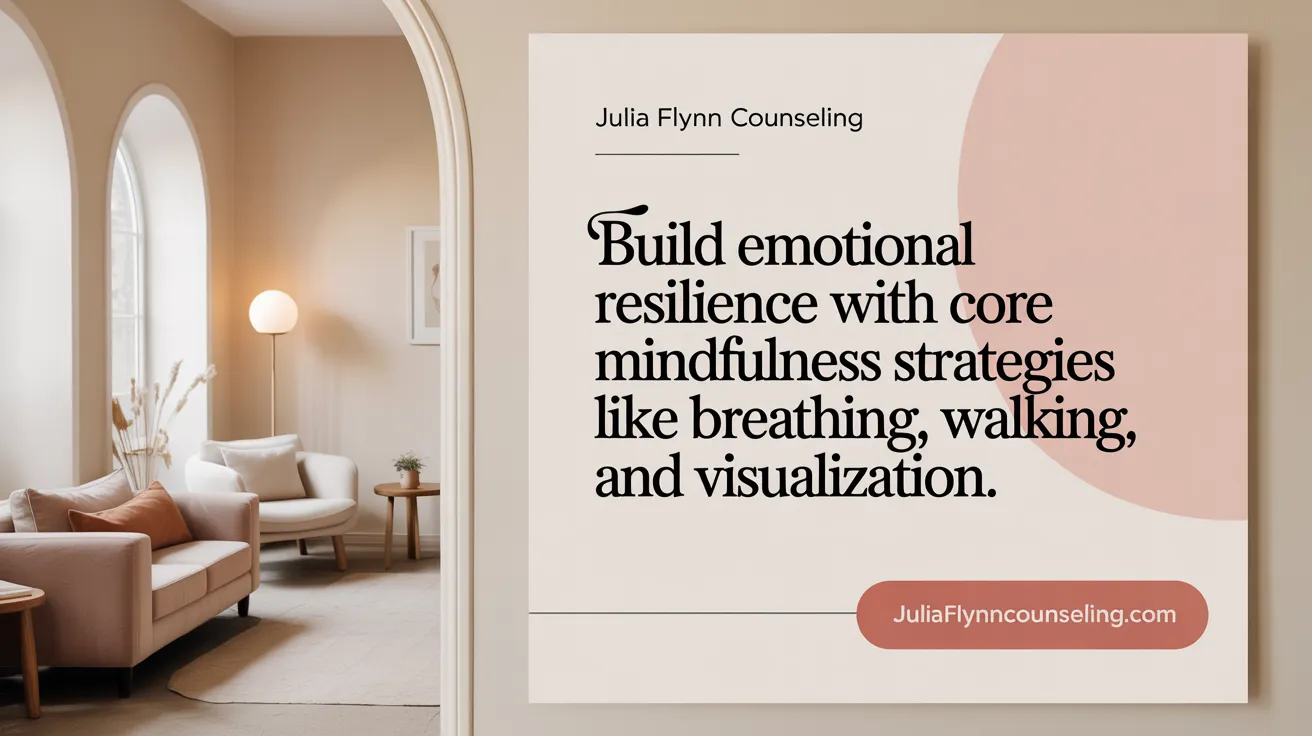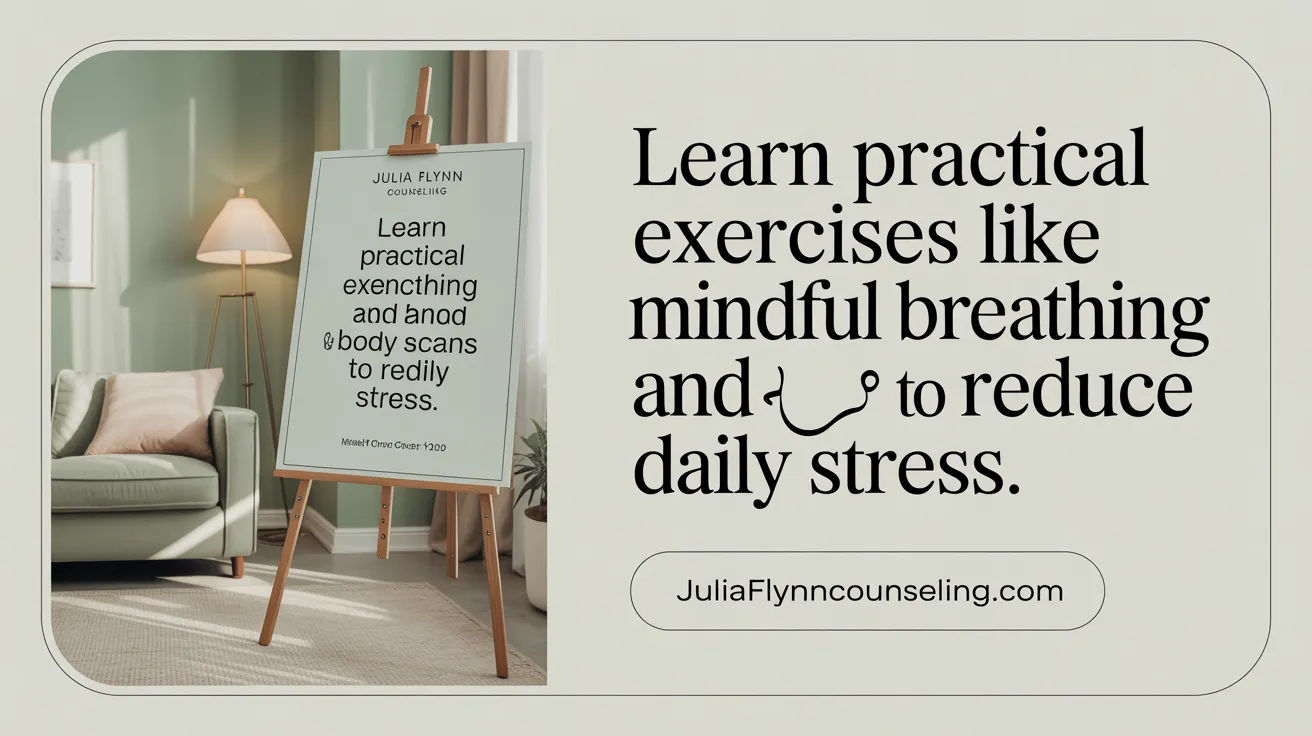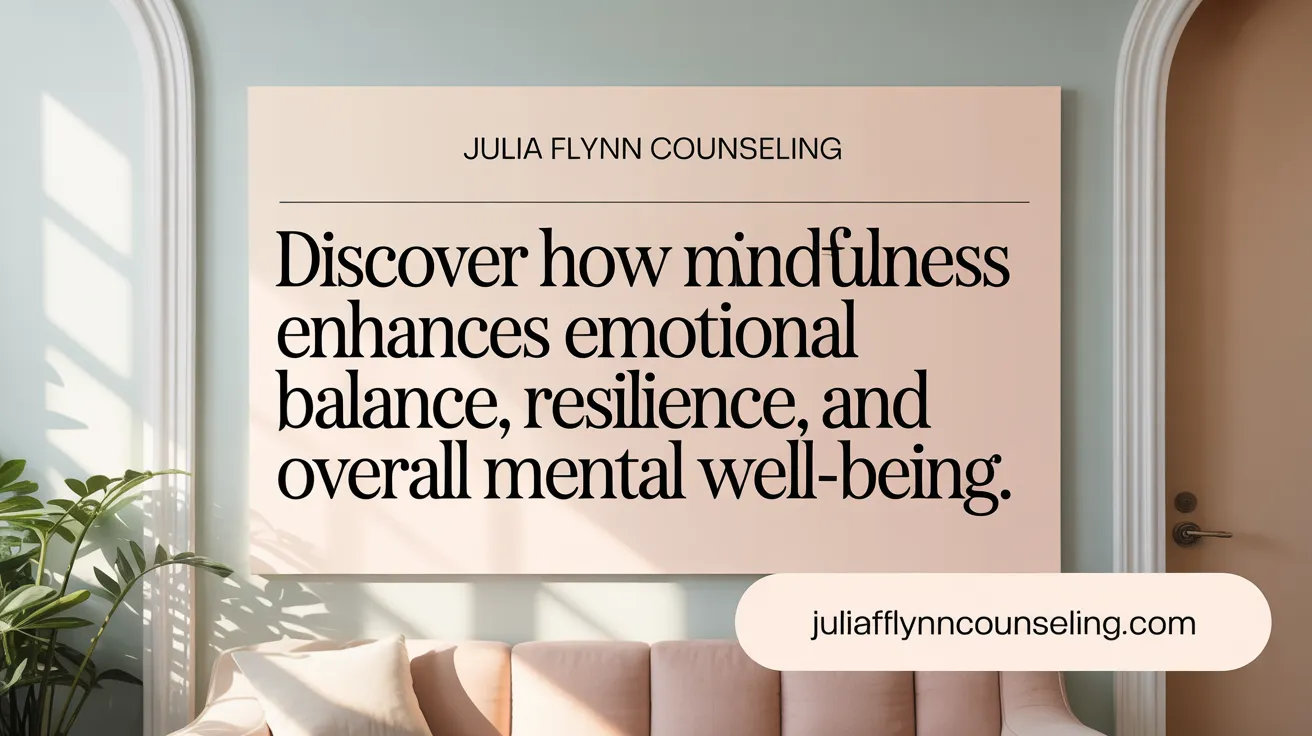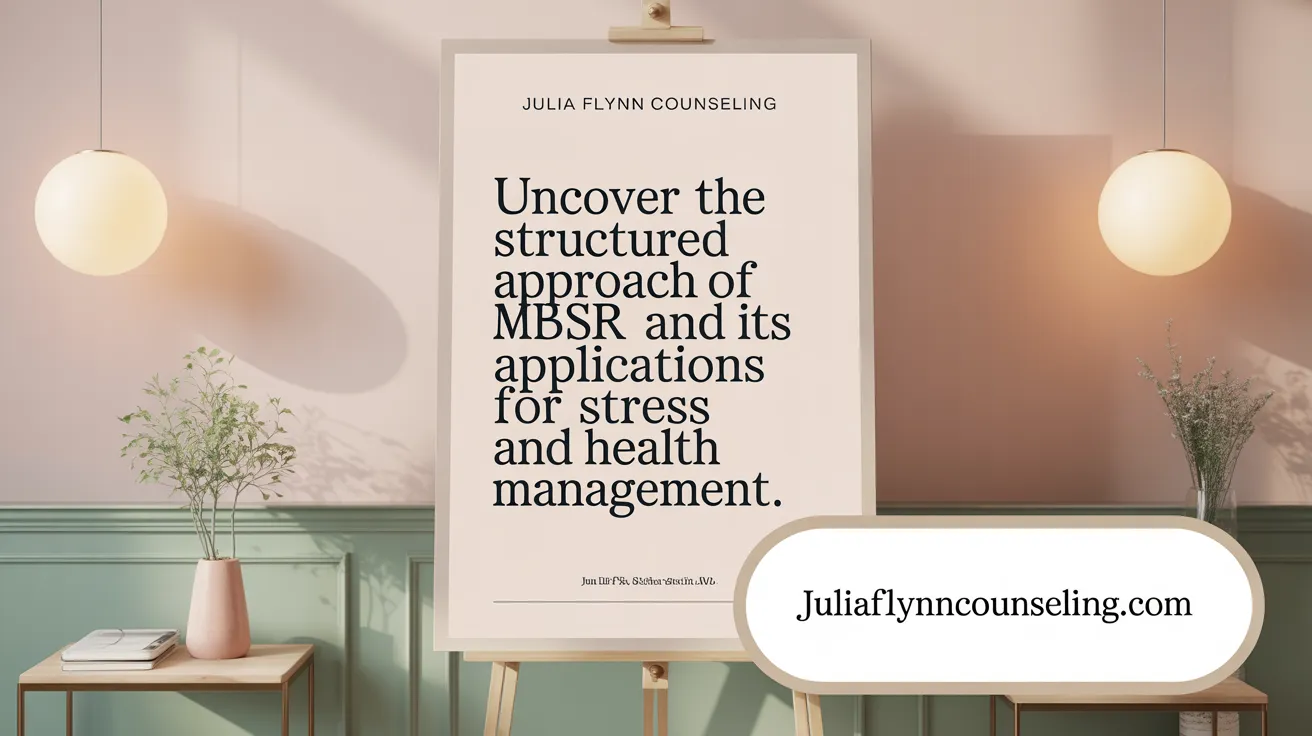Understanding Mindfulness and Its Impact on Stress
Mindfulness, defined as the practice of paying full attention to the present moment with openness and non-judgment, has garnered significant attention as an effective strategy to manage stress and anxiety. Focusing on awareness of sensations, thoughts, and feelings without interpretation, mindfulness offers a path toward emotional balance and mental clarity. This article explores the foundational mindfulness-based strategies, the scientific evidence backing their efficacy, practical exercises for everyday use, and the benefits extending beyond mere stress relief, including key programs like Mindfulness-Based Stress Reduction (MBSR). Readers will discover how to incorporate these powerful practices into daily life to improve mental health and build resilience.
Core Mindfulness-Based Strategies to Alleviate Stress and Anxiety
 'Mindfulness involves focusing your awareness on the present moment without judgment.' This practice forms the foundation of many techniques aimed at reducing stress and anxiety.
'Mindfulness involves focusing your awareness on the present moment without judgment.' This practice forms the foundation of many techniques aimed at reducing stress and anxiety.
What are mindfulness-based strategies for reducing stress and anxiety?
Practicing mindfulness offers several effective methods, including mindful breathing, body scans, walking meditation, and guided imagery. These approaches promote relaxation by encouraging attention on bodily sensations, breathing, and the immediate environment. For example, mindful breathing involves taking slow, deliberate breaths to activate the relaxation response.
Body scans are another technique where individuals systematically focus on different parts of their body, noticing sensations without reacting to discomfort or tension. Walking meditation, which emphasizes slow, deliberate steps and breathing, helps anchor individuals in the present, releasing mental clutter.
Guided imagery uses visualization to create calming mental images, fostering an internal sense of peace. All these practices help in developing emotional regulation and acceptance by observing thoughts and feelings without judgment. This cultivates a non-reactive stance towards stressors, increasing resilience over time.
Evidence from research highlights programs like Mindfulness-Based Stress Reduction (MBSR) and Mindfulness-Based Cognitive Therapy (MBCT). These structured interventions have demonstrated significant reductions in anxiety symptoms and improvements in mental health. They typically involve weekly group sessions complemented by daily individual exercises,
Regular practice—often over six months—integrates mindfulness into daily life, enhancing overall well-being. Short, informal practices such as mindful tea drinking or nature walks are accessible ways to reinforce mindfulness skills, making it a flexible component of stress management.
By incorporating these techniques into daily routines, individuals can better manage stress, improve mood, and foster a balanced, attentive outlook on life's challenges.'}}}]}Here's a style that combines approachability with thoroughness, making mindfulness strategies accessible and actionable for readers seeking stress relief.}#####END of response######}kmenedb instructed]))}End of the task.
Scientific Foundations: Evidence Supporting Mindfulness Practices

What scientific evidence supports the effectiveness of mindfulness practices?
Research over the past decades has provided robust support for the benefits of mindfulness practices on mental and physical health. More than 200 scientific studies, including clinical trials and neuroimaging research, have demonstrated that mindfulness-based interventions such as Mindfulness-Based Stress Reduction (MBSR) and Mindfulness-Based Cognitive Therapy (MBCT) can significantly alleviate symptoms of stress, anxiety, and depression.
Clinical trials show that regular mindfulness practice can lead to immediate improvements in mood and reductions in cortisol levels, a hormone associated with stress. Long-term benefits include a lower likelihood of depression relapse and better management of chronic pain conditions.
Neuroimaging studies reveal that mindfulness influences brain activity in regions linked with attention and emotion regulation. For example, practitioners often show decreased activity in areas associated with emotional reactivity and increased activity in regions promoting calmness and focus.
Compared with other treatments, mindfulness-based interventions often outperform non-evidence-based approaches such as general health education or relaxation training. They are also comparable in effectiveness to cognitive-behavioral therapy (CBT), and their principles align well with standard therapeutic practices.
However, some systematic reviews highlight variability in study designs and outcomes, emphasizing the importance of ongoing research to fully understand the long-term effects and optimal implementation of mindfulness practices.
In summary, scientific evidence strongly supports that mindfulness techniques can improve emotional well-being, reduce stress responses, and promote healthier brain functioning, making them a valuable addition to mental health strategies.
Practical Mindfulness Exercises for Managing Stress

What practical mindfulness exercises and techniques can help manage stress?
Practicing mindfulness offers various effective exercises designed to reduce stress and promote mental clarity. One of the most accessible methods is mindful breathing, which involves taking slow, deep breaths and focusing entirely on each inhalation and exhalation. This simple act can activate the body's relaxation response, lowering heart rate and calming the nervous system.
Another valuable technique is body scan meditation. This involves systematically directing attention to different parts of the body — starting from the toes and moving upward — to identify and release physical tension. Regularly practicing body scans can increase bodily awareness and foster deep relaxation.
Guided imagery, or visualization, is also widely used. It entails imagining peaceful and calming scenes, such as a beach or forest, to evoke serenity and distract from stressors. These mental pictures can help reduce anxiety and bring about a sense of well-being.
Engaging in mindful movement activities combines physical exercise with present-moment awareness. Yoga, tai chi, qigong, and walking meditation encourage slow, deliberate movements paired with focused breathing. These practices not only improve physical health—such as balance and flexibility—but also help clear the mind and manage emotional stress.
Additionally, practices like mindful eating involve paying full attention to the sensory experience of eating, enhancing digestion and grounding oneself amidst daily routines. Gentle stretching and repetitive mantras or prayers are other forms of informal mindfulness that can be incorporated into everyday life to promote calmness and resilience.
By consistently integrating these exercises into daily routines, individuals can develop emotional resilience and experience a more relaxed and focused state of mind over time.
Beyond Stress Relief: Mental Health Benefits of Mindfulness

How does mindfulness benefit mental health beyond stress reduction?
Mindfulness offers extensive advantages for mental health that extend beyond merely alleviating stress. At its core, mindfulness involves paying deliberate attention to the present moment without judgment, fostering a state of openness and curiosity.
One of the primary benefits is improved emotional regulation. Regular mindfulness practice helps individuals manage their emotions more effectively by increasing their awareness of emotional responses and reducing reactivity. This increased regulation contributes to fewer extreme mood swings and a greater ability to handle challenging situations.
Mindfulness also reduces rumination—the repetitive focus on negative thoughts—which is often linked to depression and anxiety. By cultivating non-judgmental awareness, individuals can observe their thoughts without becoming entangled in them, thus breaking the cycle of negative thinking.
Enhanced self-awareness and self-compassion are also notable benefits. Mindfulness encourages a kind and accepting attitude towards oneself, fostering better self-understanding. This self-compassion supports resilience and can lessen feelings of shame or self-criticism that contribute to mental health struggles.
In addition, mindfulness strengthens cognitive functions such as attention, working memory, and mental flexibility. These improvements help in adapting to new situations, making decisions, and problem-solving, which are vital for overall psychological resilience.
Relationships can profoundly benefit from mindfulness through improved communication and emotional responsiveness. Mindful individuals tend to be more present and empathetic, leading to healthier social connections.
Long-term practice can increase positive affect and life satisfaction by promoting a balanced perspective and acceptance of experiences, including painful emotions. This acceptance diminishes emotional reactivity, leading to greater stability in mental health over time.
In summary, mindfulness fosters a suite of mental health benefits that include emotional balance, reduced negative thought patterns, enhanced cognitive capacity, better interpersonal connections, and long-lasting resilience—making it a powerful tool for overall psychological well-being.
Incorporating Mindfulness into Daily Life: Practical Tips

What are effective ways to incorporate mindfulness practices into daily life?
Making mindfulness a natural part of your everyday routine can significantly enhance your well-being. Start by setting aside a few minutes each day—around 10 minutes—to practice simple meditation techniques. Focus your attention on your breath, notice sensations, or observe your thoughts without judgment. These short sessions lay the foundation for greater awareness.
You can also weave mindfulness into routine activities. For example, during a walk, pay close attention to your surroundings, the feeling of your feet on the ground, and your breath. When eating, savor each bite, noticing flavors, textures, and smells — this is known as mindful eating. Even during driving or household chores, pause intentionally to focus on your breathing or the task at hand.
Using triggers and reminders can help establish consistent practice. Set alarms or use mindfulness apps to prompt mindful pauses during your day. These cues serve as gentle nudges to bring your attention back to the present moment.
Engaging in sensory awareness exercises, such as body scans or gazing meditation, encourages a focused state of awareness. For example, lie down comfortably and slowly scan your body, noticing sensations from head to toes. Alternatively, focus your gaze softly on an external object, allowing your mind to settle.
Inserting intentional mindful breaks into your schedule — like taking a few deep breaths at your desk or during a commute — can reduce stress and improve concentration. It’s important to build daily habits gradually, ensuring these practices become sustainable rather than burdensome.
Consistency is crucial. Over time, integrating these techniques can transform mindfulness from an occasional activity into a natural and enriching part of your lifestyle. Remember, even brief moments of awareness count towards cultivating a calmer, more focused, and emotionally balanced mind.
Mindfulness-Based Stress Reduction (MBSR): Structure and Applications

What is Mindfulness-Based Stress Reduction (MBSR) and how is it applied?
Mindfulness-Based Stress Reduction (MBSR) is an approach grounded in mindfulness practices developed by Jon Kabat-Zinn in the 1970s. It focuses on teaching individuals how to manage stress and regulate emotions through various exercises such as meditation, body scans, yoga, and mindful movement.
Typically, MBSR is delivered over eight weekly sessions, each lasting about two to three hours. Participants learn to focus their attention on the present moment with an attitude of openness, curiosity, and non-judgment. This structured program helps foster acceptance and awareness, encouraging individuals to observe their thoughts and feelings without reacting to them.
MBSR is widely used across different settings, including hospitals, clinics, workplaces, and schools. It benefits individuals dealing with chronic health conditions such as cancer, diabetes, hypertension, and skin disorders. Additionally, it’s effective for mental health issues like anxiety and depression.
Research supports that MBSR can lower blood pressure, reduce symptoms of stress, and improve overall mood and quality of life. Brain imaging studies have shown that practicing MBSR leads to physiological changes, such as decreased activity in brain regions associated with emotional reactivity and increased activity in areas linked to calm and focus.
The program is flexible and has been adapted into shorter formats, making it accessible for busy professionals, pregnant women, and patients managing long-term illnesses. Its evidence-based approach makes it a popular complementary treatment for promoting resilience and well-being.
Mind-Body Practices Complementing Mindfulness for Stress Reduction

What are the benefits of Qigong, Tai Chi, and Yoga?
Qigong, Tai Chi, and Yoga are popular mind-body techniques that combine movement, breathing, and meditation for stress relief. Qigong involves gentle flowing movements, breathing exercises, and meditation that help lower blood pressure, reduce muscle tension, and improve balance. Tai Chi features slow, flowing postures that enhance flexibility, coordination, and deep breathing, making it effective for reducing stress and improving overall physical health.
Yoga integrates physical postures, breath control, and mindfulness to promote relaxation and mental clarity. Research suggests that practicing Yoga can decrease mental stress, improve sleep quality, and boost physical well-being, which collectively helps in managing anxiety and stress.
How do rhythmic activities like walking, swimming, or cycling promote relaxation?
Rhythmic activities such as walking, swimming, jogging, or bicycling serve as calming exercises that activate the body's relaxation response. Focusing on breath and movement during these activities helps center attention and reduce mental chatter.
A mindful walk involves paying close attention to bodily sensations, sights, sounds, and smells. This practice can slow down the mind and release physical tension. Swimming, in particular, can help release stress, facilitate rhythmic breathing, and draw individuals into the natural flow of their breath.
What are effective mindful walking techniques?
Mindful walking involves slowing down and deliberately paying attention to the sensations of movement, contact with the ground, and the environment. Focusing on each step, the rhythm of breath, and the surroundings encourages present-moment awareness.
Practicing mindful walking outdoors, especially in natural settings, can deepen relaxation and connect individuals with nature. This practice not only calms the nervous system but also fosters mental clarity and emotional resilience.
How do biological and psychological effects contribute to stress relief?
Mind-body practices influence stress pathways in the brain, notably reducing activity in regions involved in emotional reactivity. They activate the parasympathetic nervous system—the body's relaxation response—leading to lower heart rate, blood pressure, and cortisol levels.
Psychologically, these practices promote mindfulness, emotional regulation, and cognitive flexibility. They help individuals relax, accept their experiences, and respond to stress more consciously, reducing feelings of anxiety and improving overall mental health.
| Practice Technique | Main Benefits | Additional Details |
|---|---|---|
| Qigong | Blood pressure reduction, improved balance | Breathing, flowing movements, meditative focus |
| Tai Chi | Stress reduction, enhanced coordination | Slow, flowing postures with deep breathing |
| Yoga | Mental relaxation, sleep quality improvement | Postures combined with mindful breathing |
| Rhythmic activities | Relaxation, activation of parasympathetic system | Activities like walking, swimming, cycling |
| Mindful walking | Mental clarity, physical relaxation | Focus on bodily sensations and environment |
Understanding and integrating these practices with mindfulness can significantly enhance stress management. Regular use of these techniques over time fosters resilience, calmness, and emotional balance, supporting overall well-being.
Integrating Mindfulness for Sustainable Stress and Anxiety Management
Mindfulness-based strategies represent a scientifically supported, versatile approach to reducing stress and anxiety while enriching mental health. By adopting core practices such as mindful breathing, meditation, and body scans, individuals can cultivate present-moment awareness and emotional resilience. Programs like Mindfulness-Based Stress Reduction (MBSR) offer structured and accessible paths to harness these benefits, applicable across diverse populations and conditions. Supplementing mindfulness with complementary mind-body exercises further enhances well-being and stress relief. Ultimately, making mindfulness a consistent part of daily life empowers individuals to navigate life’s challenges with greater calm, clarity, and compassion, fostering a more balanced and fulfilling existence.
References
- Mindfulness exercises
- Mindfulness-Based Interventions for Anxiety and Depression
- 8 Mindfulness Exercises That Also Reduce Stress
- Mindfulness for Anxiety: Just as Effective as Medication
- Mindfulness meditation: A research-proven way to reduce ...
- How to reduce stress and anxiety through movement ...
- How to Reduce Stress Through Mindfulness
- How to Use Mindfulness Therapy for Anxiety: 15 Exercises
